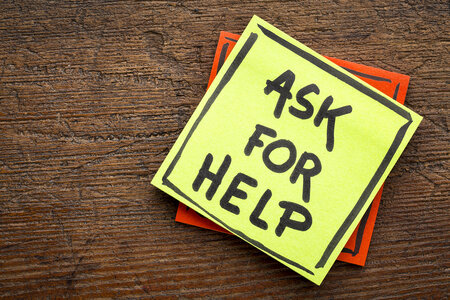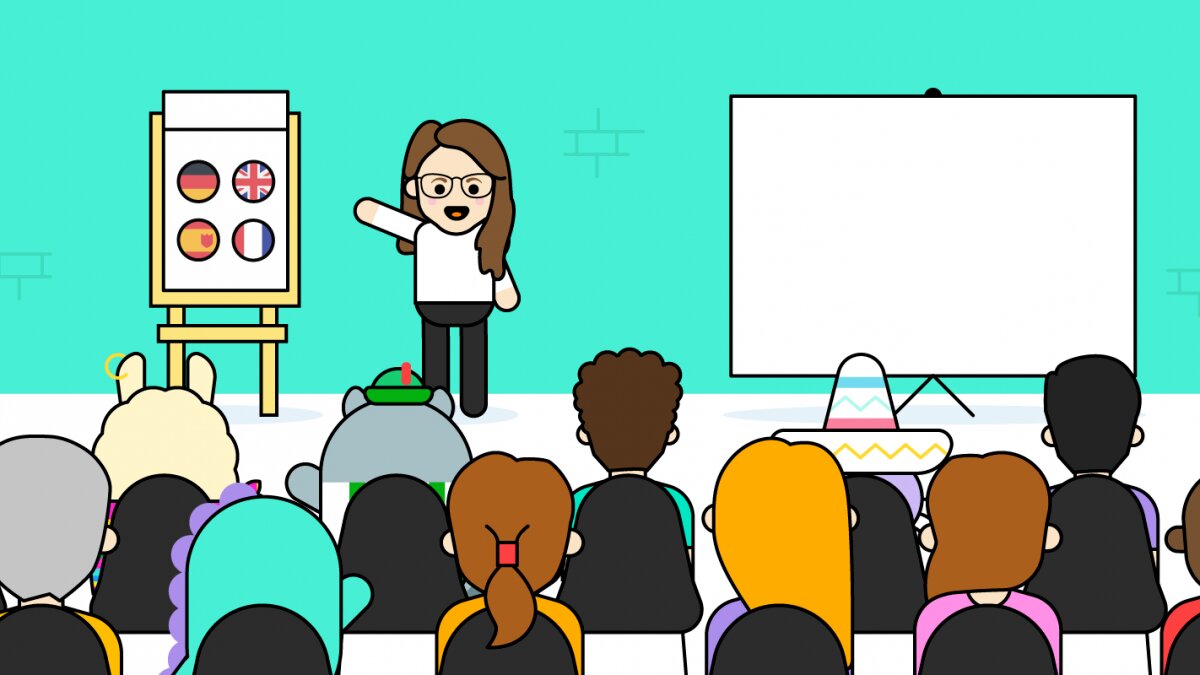Taking That First Step

The fact that you’re even thinking about learning a new language is amazing. Speaking a language other than your native tongue can open up all kinds of doors for you, whether that’s in your career, future travel plans, or even your romantic life!
Studies have also shown that by learning a new language, your brain stands more of a chance of warding off conditions like Alzheimer’s and dementia. The brain is a muscle, and by using it in an activity like learning a language, you keep it in tip-top shape, improving cognitive function, memory, and reasoning skills.
Of course, we’d love to be able to click our fingers and be immediately fluent, whether that’s in another language or a new musical instrument. But all good things come not to those who wait, but who those who take the time to really hone their new skill.
So, what should you be expecting when it comes to taking on a second language?
Set Out Your Goals

First, ask yourself what you’re hoping to achieve from learning a new language. Are you hoping to move to another country entirely and begin a new life, or are you simply curious about another culture?
Not everyone’s reasons for learning a new language will be the same. For some, particularly if they move to a new country, they feel they have no choice to try and master the tongue, and they feel frustrated when the process doesn’t happen as quickly as they’d like.
Others might be happy learning one or two new words a week and trying them out with an online friend or pen-pal. There are different levels of knowledge of a language that each person will be aiming for, so think about the level you’d like to see yourself at.
Think about how long you’d like to dedicate to this new language. Will you be quitting your job and devoting 8 solid hours a day mastering it? Or will you be dipping in and out from time to time?
What the Research Tells Us
We don’t remember learning our native language, because we absorbed so much of it when we were very young. Ever since before we were born, we were hearing sounds the sounds of people talking and associating them with the people around us. From infancy onward, our brain, which was already fully equipped to take on the language, dealt with these sounds. It imprinted them onto us as language before we even realized it.
But language isn’t innate. By that, we mean that we aren’t born with the language already inscribed in our brains. That’s why if a baby is born in England but then immediately moves to France, and hears nothing but French in its formative years, it won’t know a word of English.
So, how long does it take to become fluent in a language?

By that, we mean a second language. One other than our native tongue.
Well, research states that it can take anywhere between 480 and 2200 hours! That’s a lot of studying. But there are many factors at play. It’s not just about the hours spent poring over books or repeating words from an online video.
The speed at which you can pick up a language depends on such things as:
- How many languages you already know – if you already speak two or three languages, picking up another won’t be so difficult.
- How similar the new language is to your own – for example, Spanish speakers find it relatively easy to pick up Italian, because they share many of the same lexical (word) similarities.
- How similar the written language is to your own – it’s one thing to go from French to English, where both use the same alphabet, and quite another to go from French to Chinese, which uses a system of logos, rather than individual letters.
- How relevant the new language is in your life – will you require it to navigate life in a new country, or are you only looking to test your own language skills as a hobby?
- How much you immerse yourself in the new language – because as the old adage goes, practice really does make perfect!
We’re going to now look in more detail at this last point: how much you immerse yourself in the new language. Because this is what will make all the difference in your learning.
Let’s use English as an example.
Why Should you Learn English?

A French person will tell you that it’s important to learn French, and a Japanese person will no doubt extol the virtues of their own language, too! It’s normal for you to be proud of your native language and to encourage others to learn it.
But we don’t just encourage you to learn English because we like the language (even though we do!). We encourage you to learn English because it’s officially the most recognized language in the world. It’s the most widely spoken language all over the globe, with over 1.2 billion speakers.
If you come from a non-English-speaking country but you learn to master English, it can significantly improve your job prospects. It could mean the chance to work anywhere from Canada and the USA, to the United Kingdom, South Africa, or Australia.
Not only that, but most Hollywood movies are in English, as is pop music and a lot of common pop culture. Think of all the apps on your phone that default to English. The top YouTube videos and influencers you might like to watch. By learning English, you can truly expand your world.
There are many reasons why English is an important language to learn, but learning it can be so much fun because of the huge variety of ways you can truly immerse yourself in the language. That way, you won’t so much be asking “how long does it take to be fluent in a language” but more “when on earth did I pick up so much English?!”
Immerse Yourself in English!
We know that reading from books is important when it comes to learning, but a language must be lived! It has to be used, and we’ve always said to keep your knowledge growing, and stay engaged, you need variety.
How can you get this variety?
Watch More Television!
Now you have the perfect excuse to watch as much TV as you like. You’ll have no shortage of entertainment choices in English. As your English improves, try watching a film or TV program without subtitles.
Get into the habit of listening to the radio, too, because that way you’ll pick up on conversational styles. Even different regional accents as the DJs speak to one another in between songs. Oh, and listen to the songs, too!
Talk to Yourself
That’s right, it’s no longer a sign of madness but a sign of learning, and of practicing a new language! Have conversations with yourself. Ask yourself questions and then give the answers. Anything from ordering a meal in a restaurant to talking about your favorite film.
If the idea of talking to yourself is too strange, though, talk to others. We have the perfect solution:
Use Discord!

That’s right, it’s not just for gaming!
Discord is a modern-day chat room but instead of just typing, you get to talk, too. And this is why it’s perfect for learning a language. Our very own Discord Server can connect you to other English speakers all over the world, where you can discuss anything you like, whenever you like, with any one of our over 80,000 members.
The beauty of the popular social media app is that it’s free on most platforms, including iOS and Android. All you’ll need to do is create an account.
Don’t be Afraid to Ask for Help!

Everyone who’s learned a second language has to start from somewhere. And we know that English has some pretty bizarre rules and strange words that can trip you up.
For example, have you ever wondered why there’s a silent B in English? Or maybe, even more strangely, why there’s a silent E in some words? By checking a wealth of online resources you’ll always be able to find answers to your questions.
There are lots of places online where you can find free books, too. Some of them can be mailed to you particularly if your local education authority has such a scheme but there are plenty to download and read at your leisure, either by printing them off or reading from a device.
Don’t forget to make learning your new language fun. If you’re not enjoying your lessons, then take a break for a little while. Work out the ways of learning that work best for you.
Before long, you’ll find that you’ll be conversing, reading, and even writing in your new language with barely a thought! And most importantly you’ll have gained a brand-new skill and achieved something you ought to be proud of. We look forward to chatting with you!

